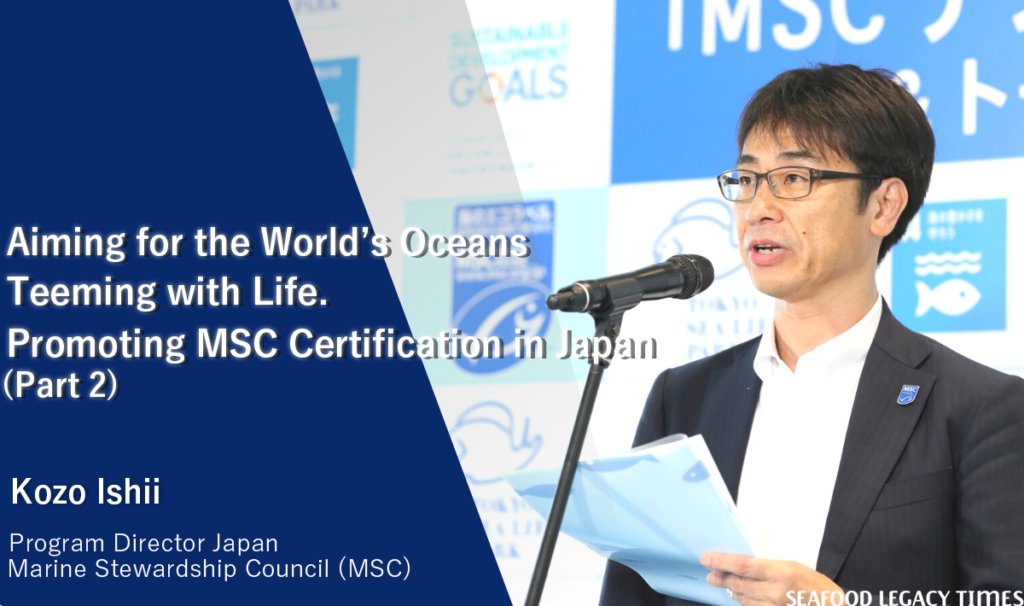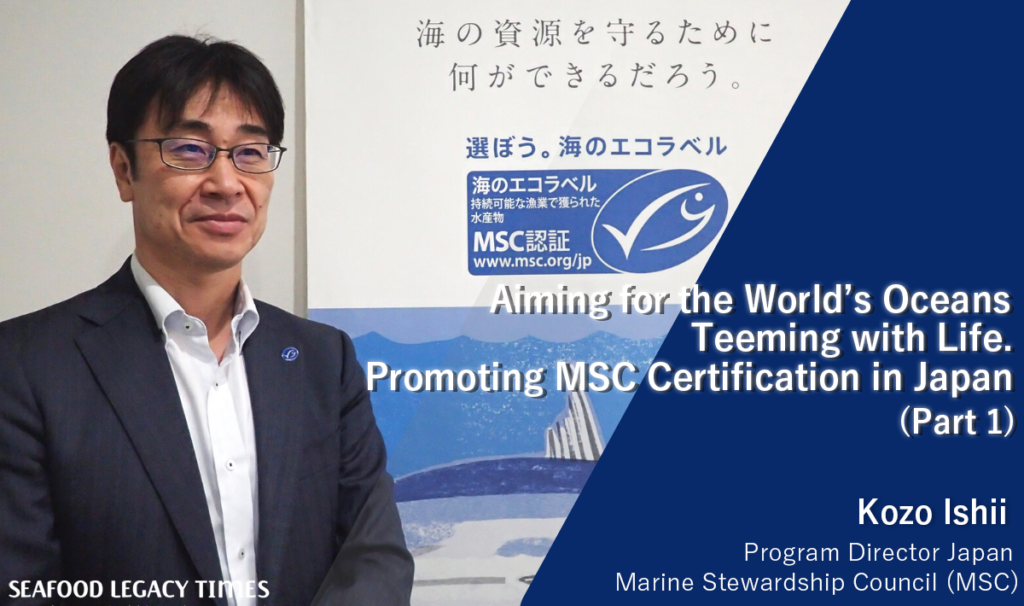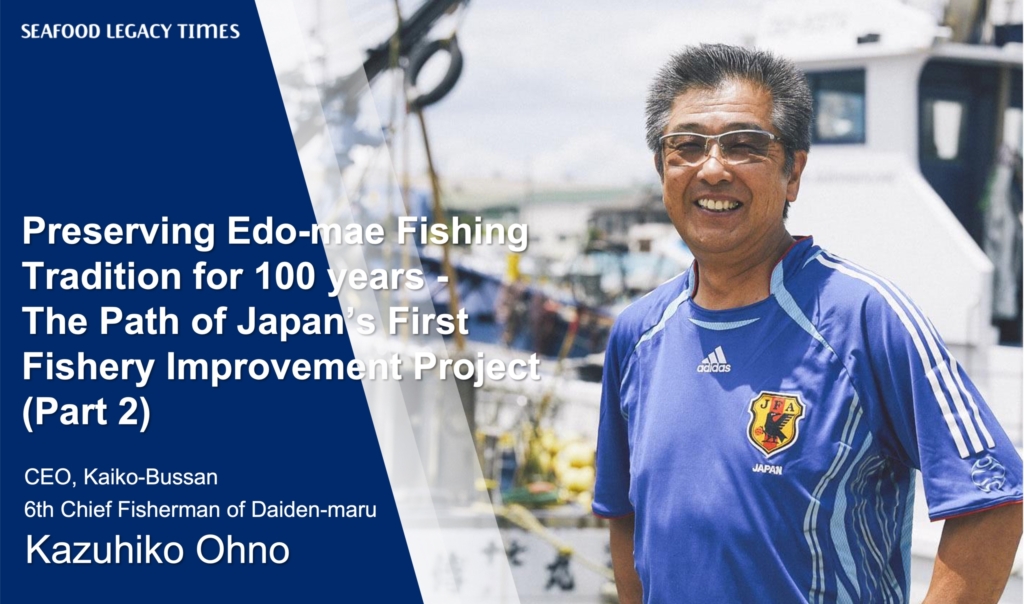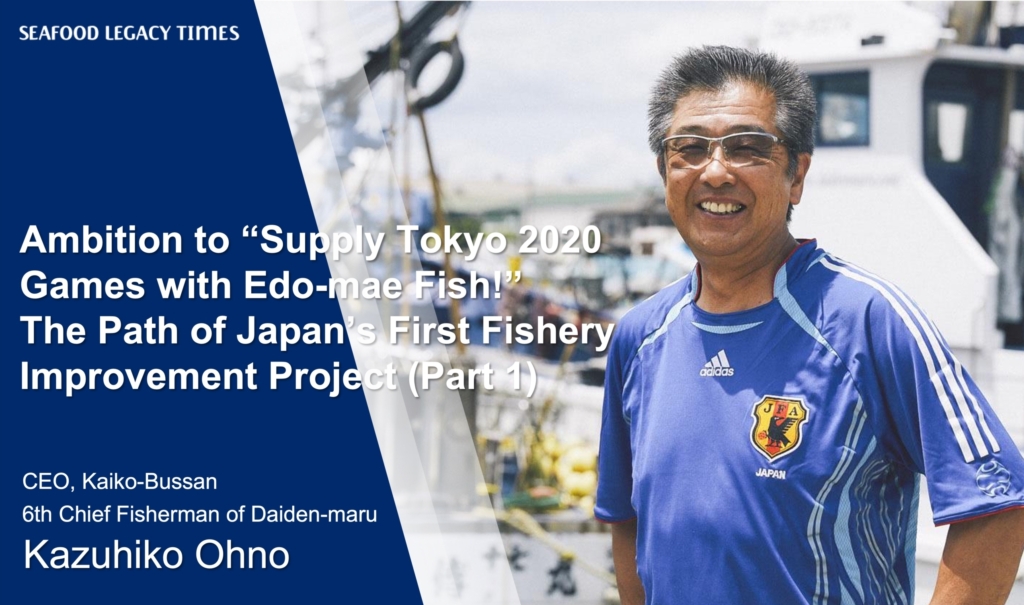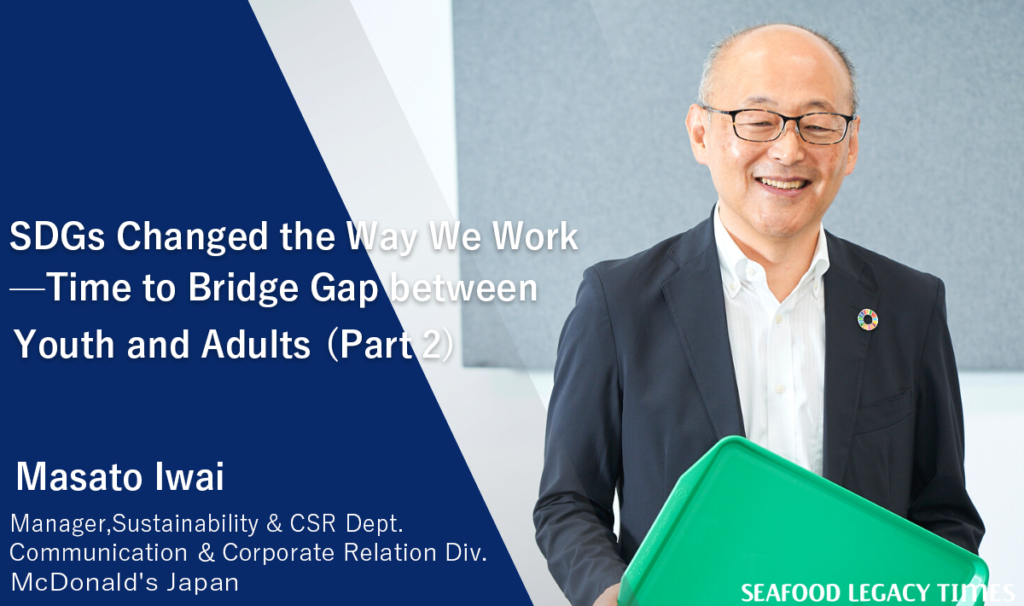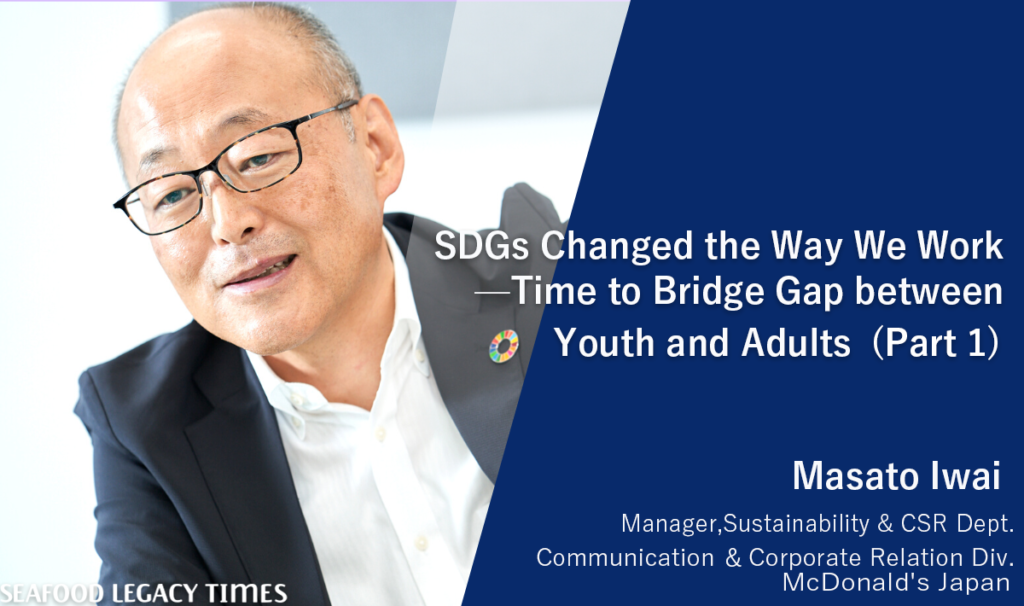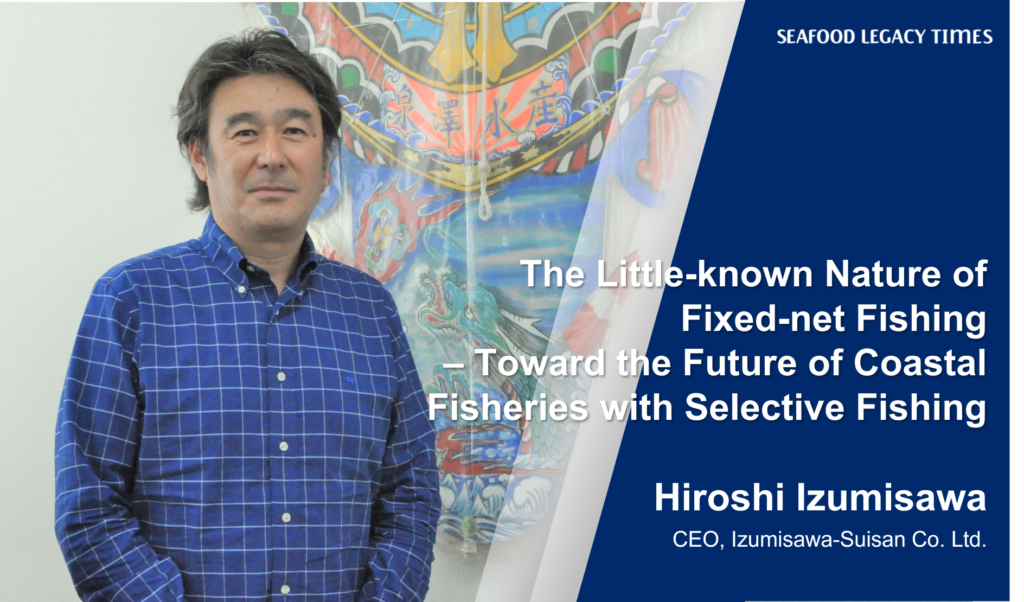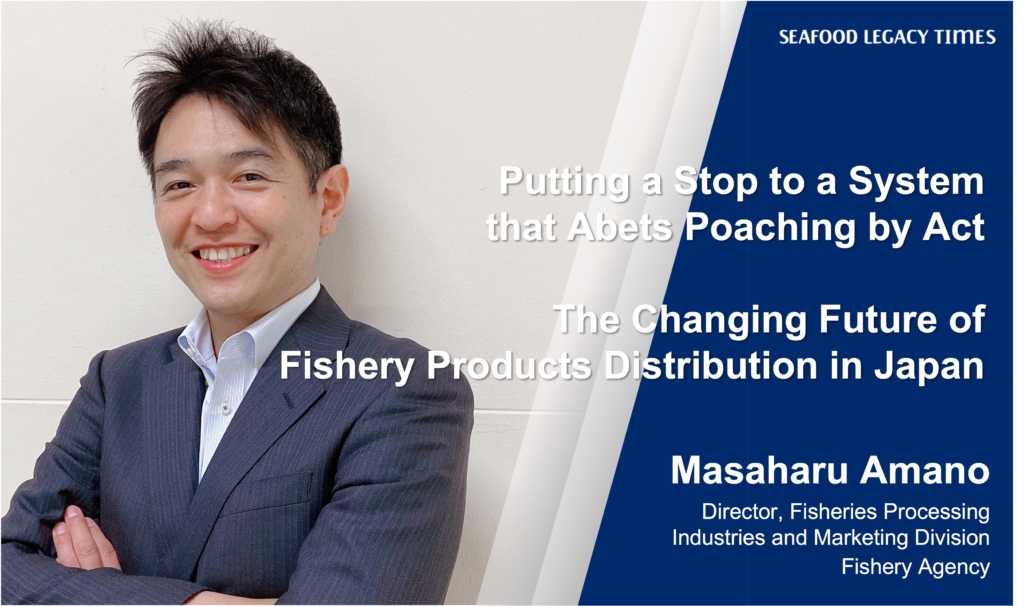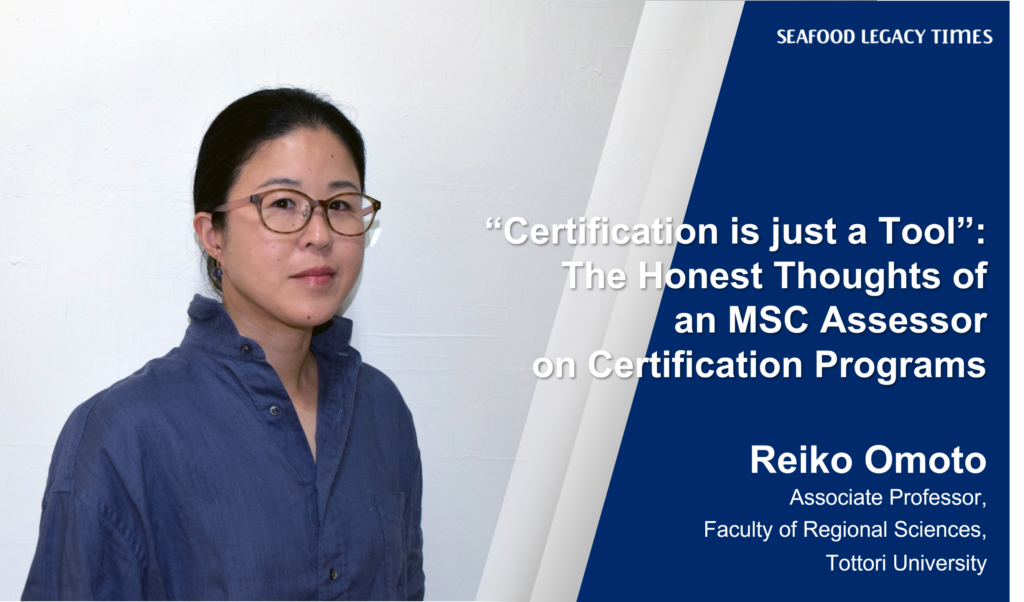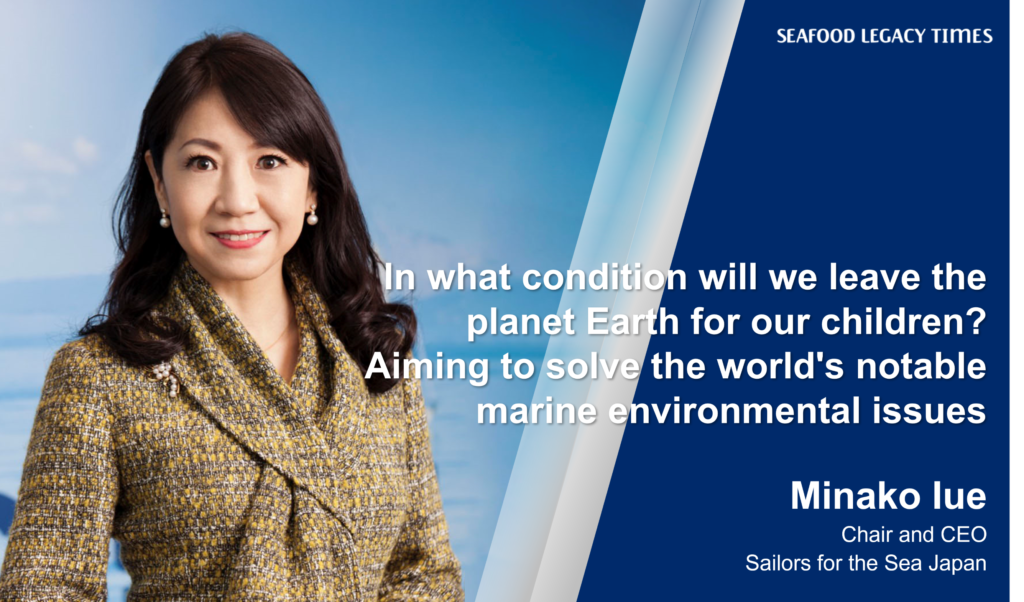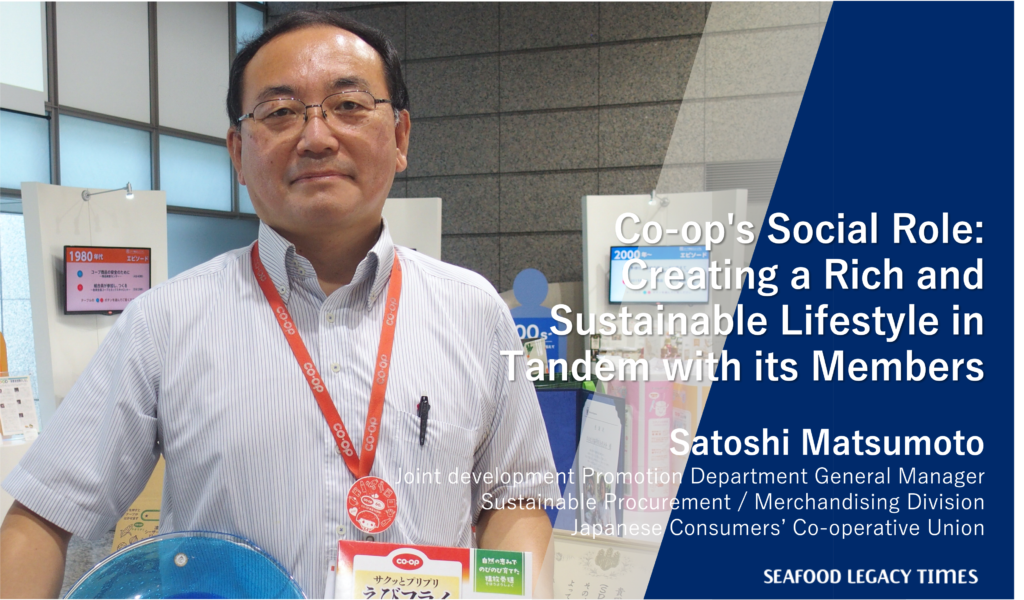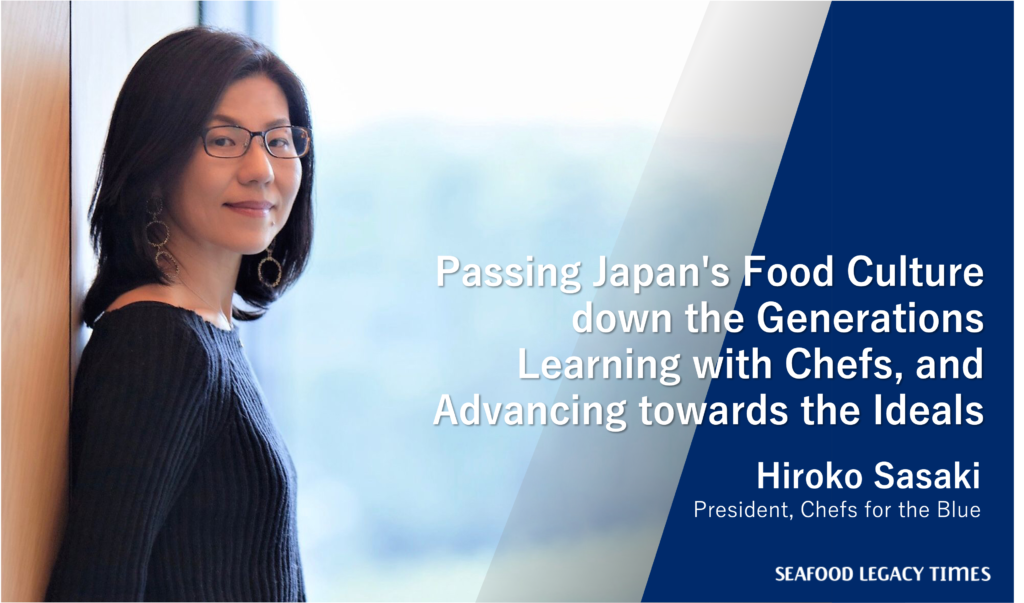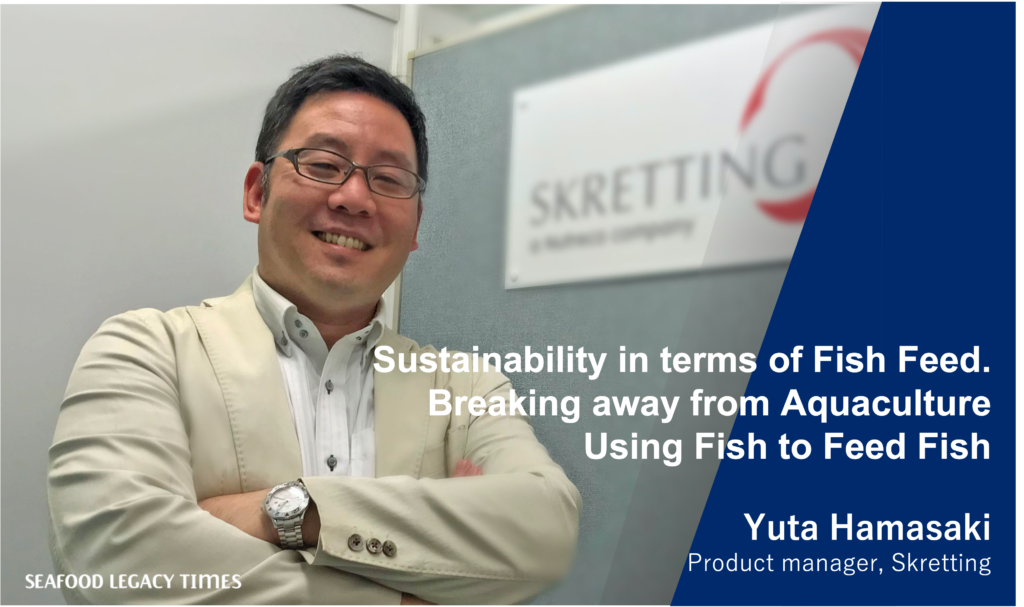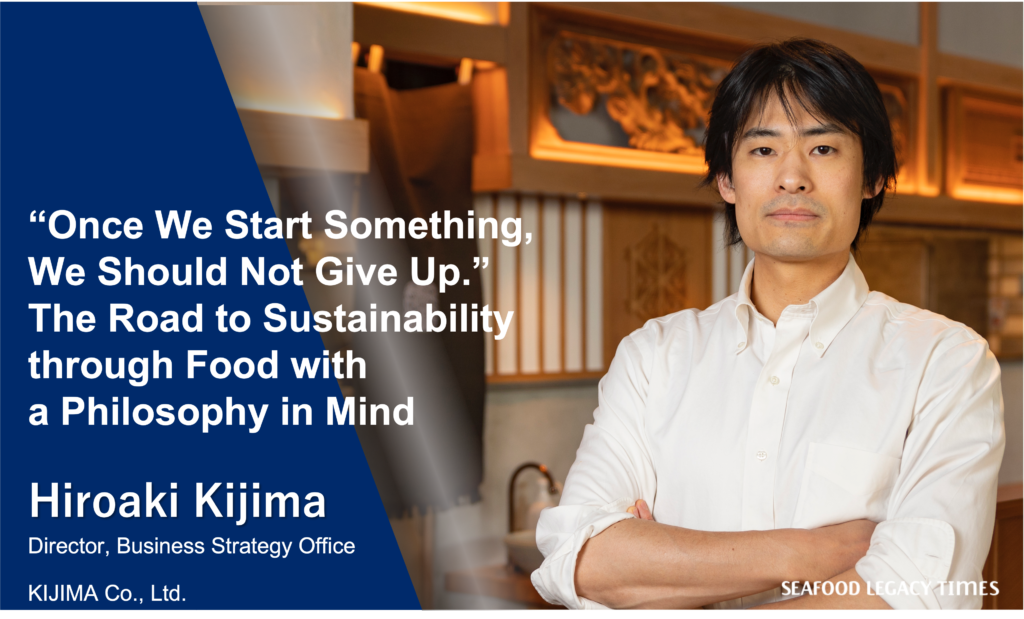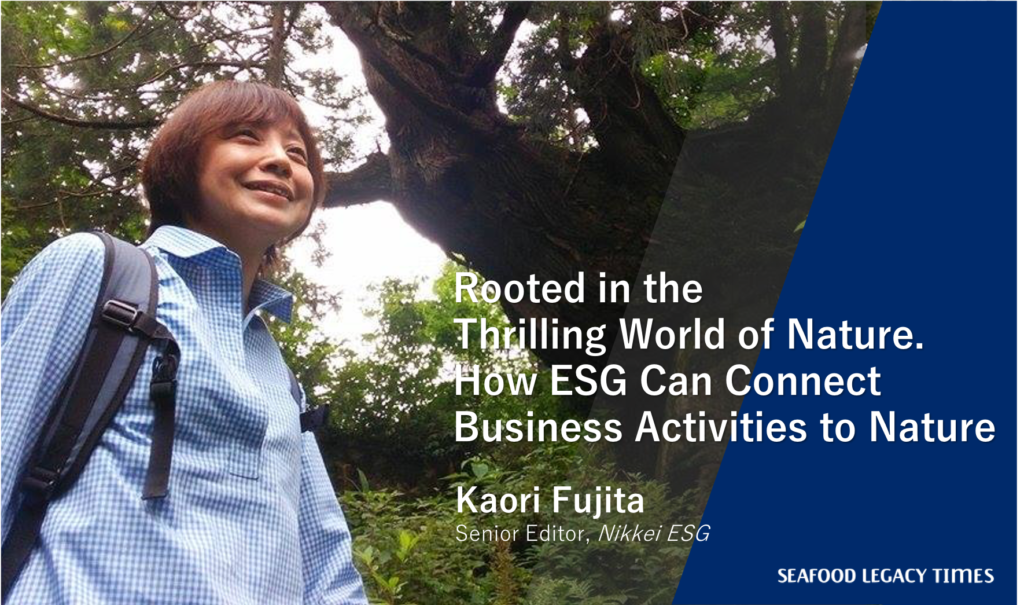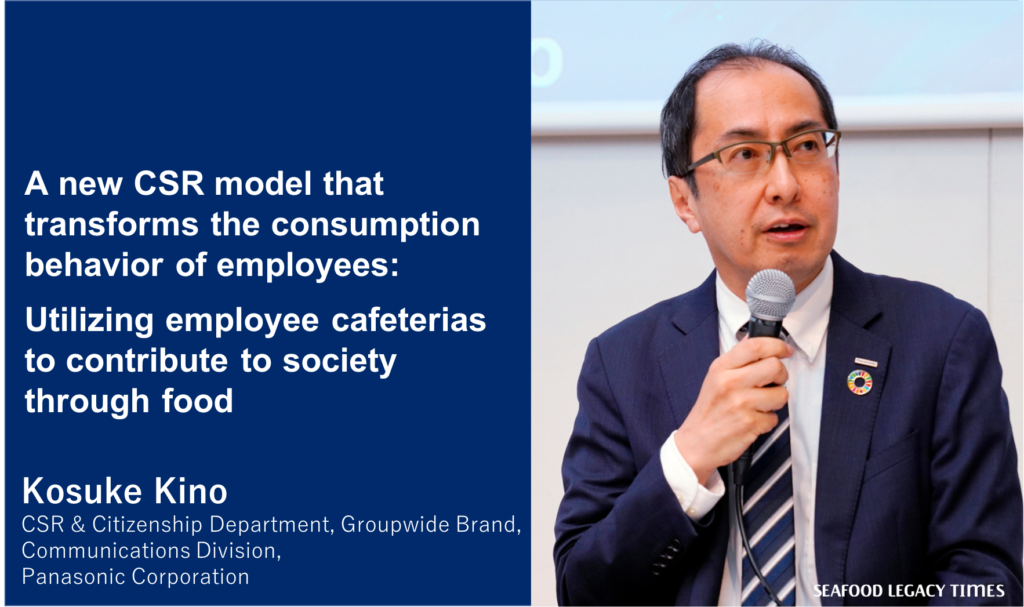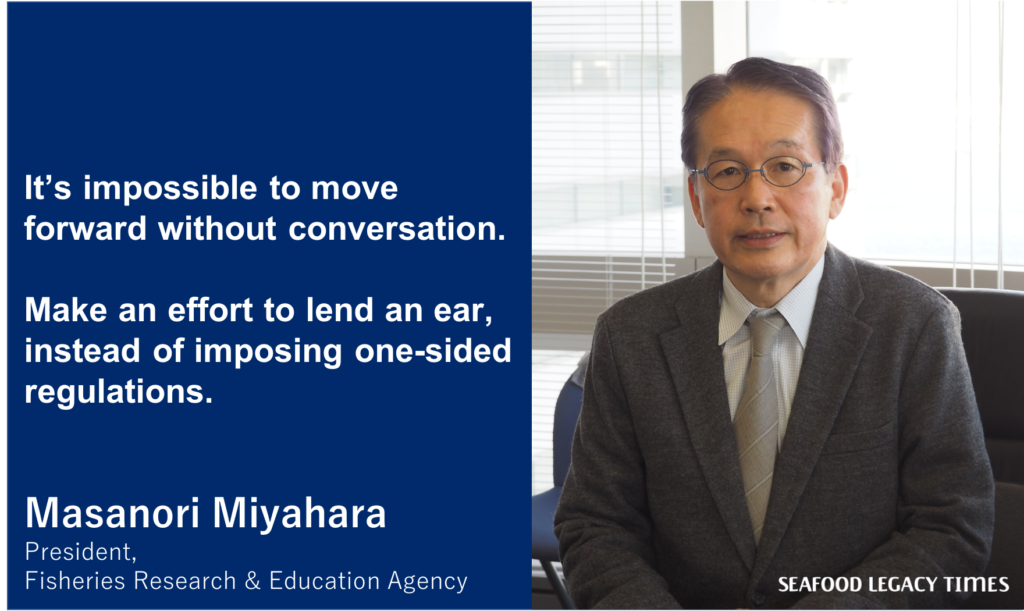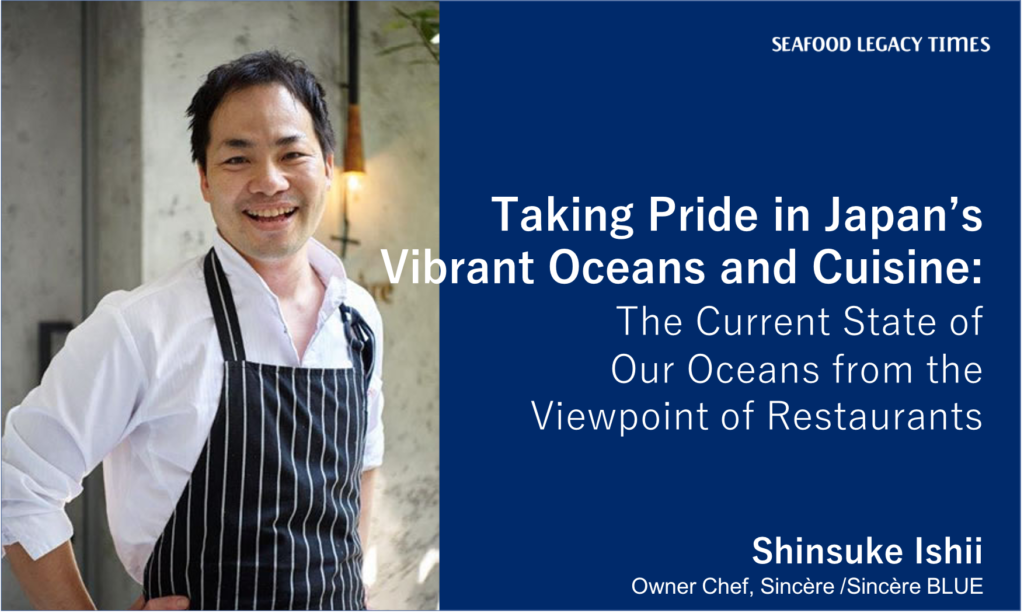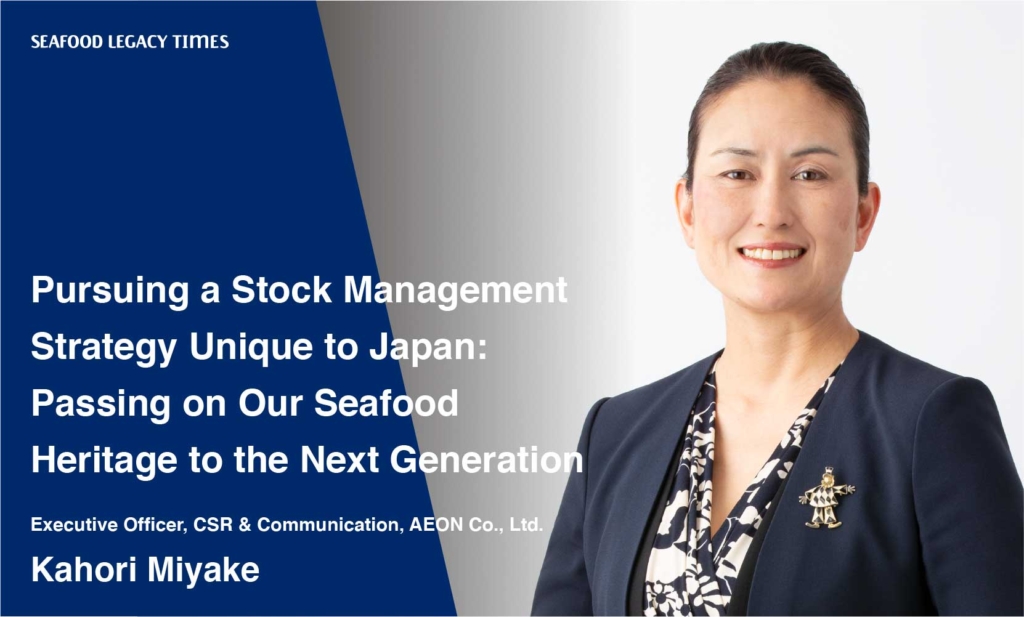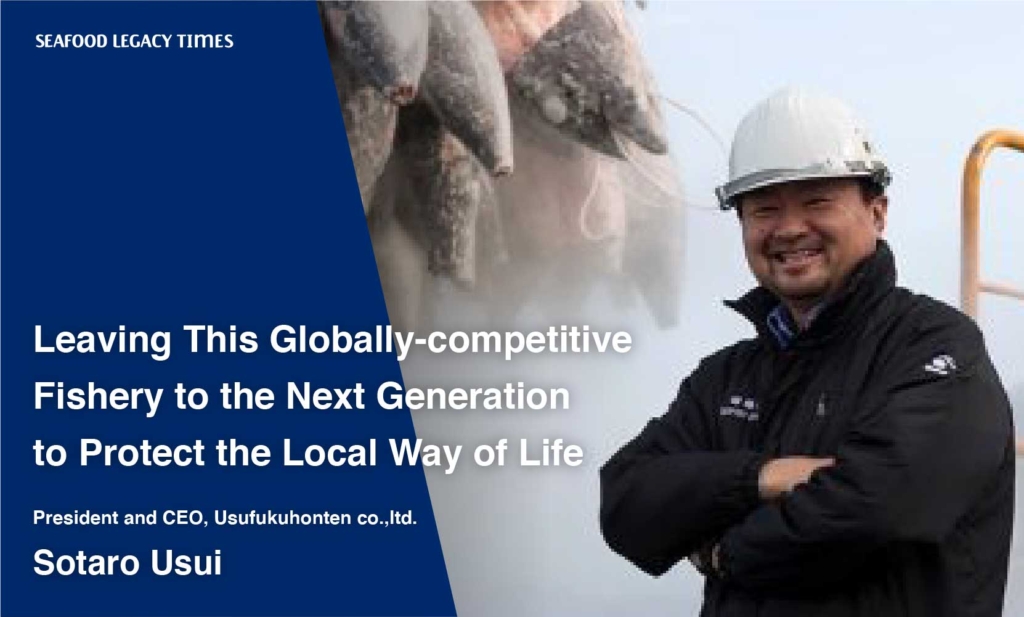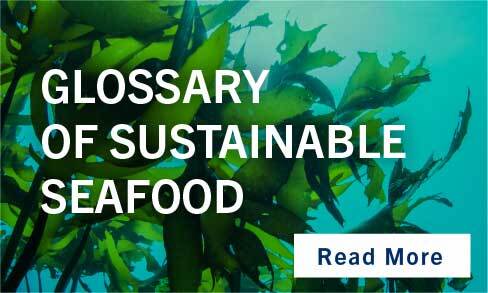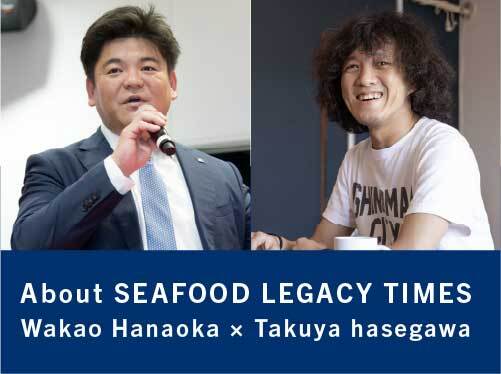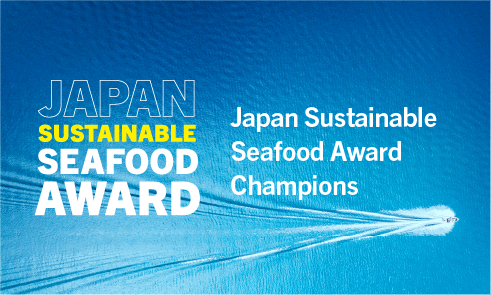
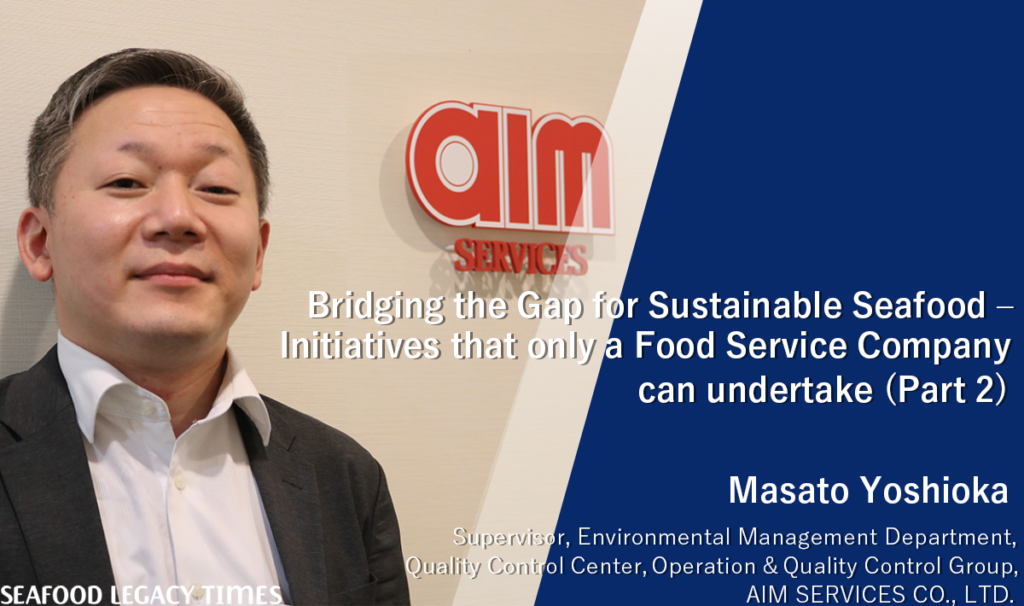
Masato Yoshioka, Supervisor, Environmental Management Department, Quality Control Center, Operation & Quality Control Group, AIM SERVICES CO., LTD.
In recognition of the magnitude of the impact of its business activities, AIM SERVICES, a food service company with the slogan “Help support Japan’s future through our “food service” has formulated its “Basic Policy on Sustainability” in December 2018 in order to contribute to sustainability in today’s society, where needs are diversifying and deepening as of late, such as work style reform, response to human resource shortage, and consideration for global environment.
We asked Mr. Yoshioka, who has been promoting and supporting the SDGs within and outside of the company as the certification secretariat ever since they became the first food service company in Japan to obtain CoC certification, his thoughts on promoting sustainable seafood in a way only a food service company can.
–– Are more companies acquiring CoC certification than before?
I have heard that some logistics companies have obtained CoC certification, because of requests not only from us but also from other mass-market retailers as well. As a requirement of the MSC/ASC certified product standard, we can only procure products from companies that have obtained CoC certification, so, in some cases, we have asked our existing suppliers to handle certified products if that was possible, and in other cases, we have consulted with companies that are disseminating information on certified products and have entered into new business relationships with them.
— Mr. Kosuke Kino of Panasonic mentioned that he would like to establish a corporate network that gathers companies that have introduced sustainable seafood in their employee cafeterias (hereinafter referred to as “cafeterias”) and those that are considering it. Are such movements underway?
Thanks to Mr. Kino’s reach, we have received dozens of inquiries over the past four years from other companies wanting to do the same in their cafeterias or obtain CoC certification.
We will continue to provide sustainable seafood, as we believe that environmental initiatives such as this one, which leads to changes in user awareness and behavior through cafeterias, are important measures to respond to current social and client needs.
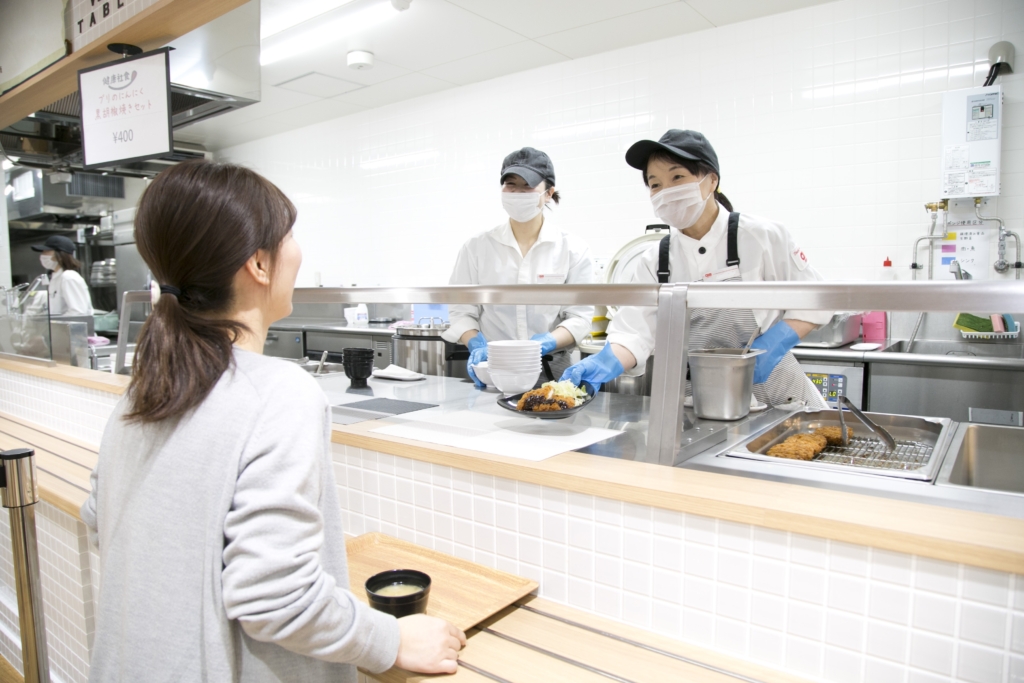 The employee cafeteria is also a place that encourages employees to raise their awareness and change behavior through food. (Photo courtesy of AIM SERVICES)
The employee cafeteria is also a place that encourages employees to raise their awareness and change behavior through food. (Photo courtesy of AIM SERVICES)
Ultimately, we have to be proactive so that sustainable seafood becomes the norm. However, the reality is that there is still only a small amount of certified products in the entire supply chain, so I personally believe that a broad network of companies would be effective.
— Do you ever make requests to manufacturers for more sustainable seafood ingredients for cafeterias?
We sometimes make requests, but since production lots are measured in units of tons, only one species of fish turns out to be the same amount as the annual consumption of our company. The reality is that it is difficult for manufacturers unless they are accompanied not only by the social and environmental aspects that are the SDGs, but also by the economic one.
The only way to solve this problem is to increase the number of people who choose to buy the products. As mass retailers and co-ops are increasing the number of ecolabel products, I would like to know how much the average consumer is aware of this.
— Does that mean that, in the end, if the average consumers do not start to choose products with ecolabels, offering sustainable seafood in cafeterias will become economically unfeasible?
We feel that it is of great significance to promote changes in the awareness and behavior of users in the cafeteria space, and this stance has not changed. However, sustainable seafood served there is still very rare. So it is a question of what comes first, the egg or the chicken. Do consumers become aware of sustainable seafood and choose it, and then decide to try it in the cafeteria, or do they choose it at a supermarket because they saw it at a cafeteria?
But I think it is necessary to get people to understand the essence, the reality of fishery resources and why eco-labeled products are sustainable, by communicating it effectively.
When I was talking with producers, they asked, “Mr. Yoshioka, do you know why we do pelagic fishing now?” “Why?” I replied. “Because we ate as much as we wanted from the coastal waters and threw away everything we didn’t need, so the fish disappeared. Because we did that, we really need to manage them properly now with ecolabels.”
On the other hand, I sometimes get asked, “By the way, which is more profitable, MSC or MEL*?” They understand the environment is important, but the business also has to be done.
In the end, it is a difficult balance between continuing business and managing fishery resources. No matter how much we know about the reality of fishery resources and promote sustainable seafood activities as a food service company, if we do not fill the gap in the awareness of the people who buy the products, they will not choose them. I am wondering why Japan is like this even though the people eat so much fish.
— Does the sustainable seafood served in cafeterias have to be a certified product with an ecolabel?
We have it as an option for companies that can choose sustainable seafood with global certifications such as MSC and ASC, but there are also other eco-labels such as BAP that can be used at all locations simply by the end user signing a contract.
Looking at Japan alone, Panasonic has begun offering seafood from Fukushima Prefecture as part of a project to support the reconstruction of the area. This is another contribution to sustainability, as it helps to resolve issues towards SDG 11, which is “Sustainable cities and communities”.
福島復興サンプルコーナー-1024x683.jpg) From January 2022, as part of Panasonic’s efforts, AIM Services began offering agricultural, livestock, and seafood products from Fukushima Prefecture at the cafeterias at its headquarters (Monma City, Osaka) and Osaka Business Park (Chuo-ku, Osaka), where it operates as a trustee. (Photo courtesy of Panasonic)
From January 2022, as part of Panasonic’s efforts, AIM Services began offering agricultural, livestock, and seafood products from Fukushima Prefecture at the cafeterias at its headquarters (Monma City, Osaka) and Osaka Business Park (Chuo-ku, Osaka), where it operates as a trustee. (Photo courtesy of Panasonic)
Up until now, some companies have given up on offering MSC and ASC-certified products because of the costs involved in operating the certification. This is where the enthusiasm for sustainable seafood is lost.
I believe that one of our challenges is to develop options for our customers so that it leads to sustainable seafood being offered, not limited to just certified products.
— The future of corporate cafeterias is still partly unclear due to COVID-19, but how is the intention of clients at schools and hospitals?
Clients at schools often ask us to propose “local food for local consumption,” which supports the local economy, rather than MSC/ASC-certified products. I think it is important to assess the impact of that also being an SDGs initiative and to think of a story behind it.
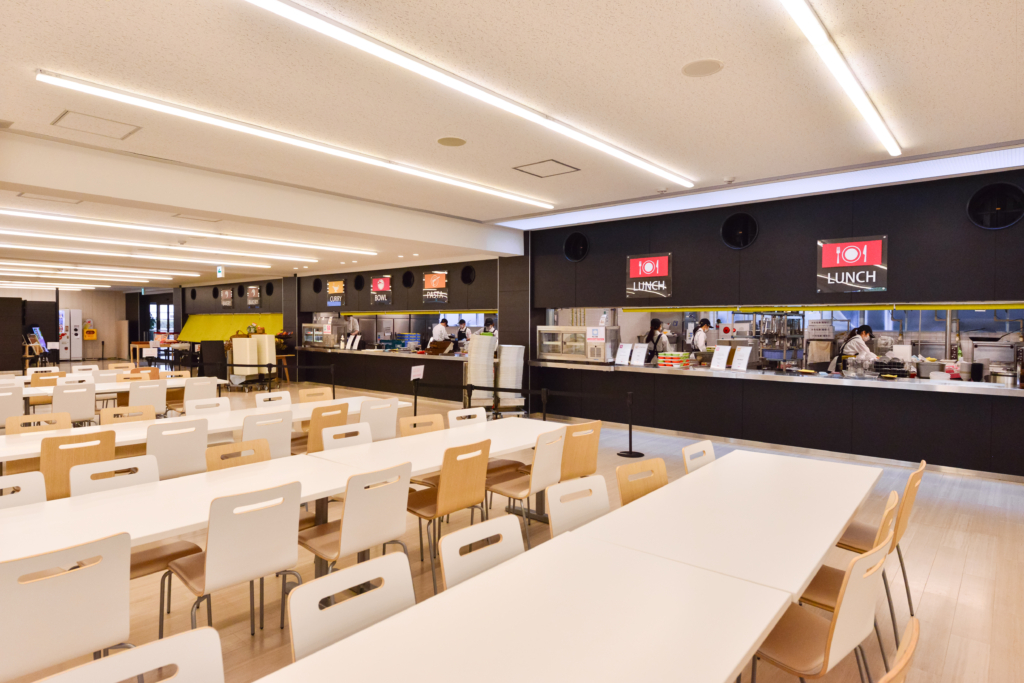 AIM SERVICES also works as a trustee in student cafeterias. (Photo courtesy of AIM Services)
AIM SERVICES also works as a trustee in student cafeterias. (Photo courtesy of AIM Services)
In case of hospitals, unlike corporate cafeterias, the entire menu, including calories and nutritional content, is predetermined, so it becomes even harder, as they require ingredients that meet those standards. However, we have actually received a number of inquiries from hospitals about MSC/ASC-certified products.
When they say, “We’d like to try it,” and then we say, “Well, then you need CoC certification,” it becomes a bit too difficult for them. I’ve said that to MSC people several times. “The certification system is a bottleneck in getting clients to actually try it, so we need you to think of a better way of doing it.”
— Did you personally become interested in sustainable seafood through work?
I majored in biotechnology. I had experience in rice quality control at my previous job, so I thought quality control of food products in general would be interesting, and I joined AIM SERVICES. At that point, I was not particularly interested in sustainability.
What triggered my interest was when I met Mr. Kino of Panasonic after obtaining CoC certification. He is a very powerful and knowledgeable person, and it took me a lot of studies to be able to talk to him properly. He really trained me. When I felt his enthusiasm, I felt like I had to work hard as well.
— What do you find most rewarding about your job at a food service company?
The ones who produce the food, the ones who provide and use it, and the ones who choose it need to be on the same wavelength for it to become a viable business, so I believe that I should be able to bridge that gap.
For example, the oyster farmers from Tokura in Miyagi Prefecture that Panasonic had been supporting in the recovery from the Great East Japan earthquake obtained ASC certification. We decided to do something with a company that had obtained CoC certification, and as one of our existing business partners had also obtained CoC certification, we were able to serve fried oysters in the cafeterias. I felt that we had established a good cycle when the employees of Panasonic enjoyed the fried oysters.
-725x1024.jpg)
Since we have offices throughout Japan and relationships with local governments, I think it is necessary for us to be proactive in addressing food ingredients that can help solve social and environmental issues, not only certified products.
As I think the cafeterias are useful as a place to disseminate information, I’m always happy when we get a response from someone after we think about what we could do and give it shape.
Seeing the thoughts of the producers and locals connect with the users, and that taking shape as a business – those two things are passions of my job.
Masato Yoshioka
Born in Kyoto in 1977. Majored in biochemistry. After working for a food trading company, he joined AIM SERVICES CO., LTD. He is involved in quality control and food ingredient purchasing, and promotes initiatives related to MSC, ASC, and CoC certification. In 2018, the company became the first food service company to obtain certification. Currently, he is a member of the Environmental Management Office, where he promotes and supports the SDGs both internally and externally as the certification secretariat.




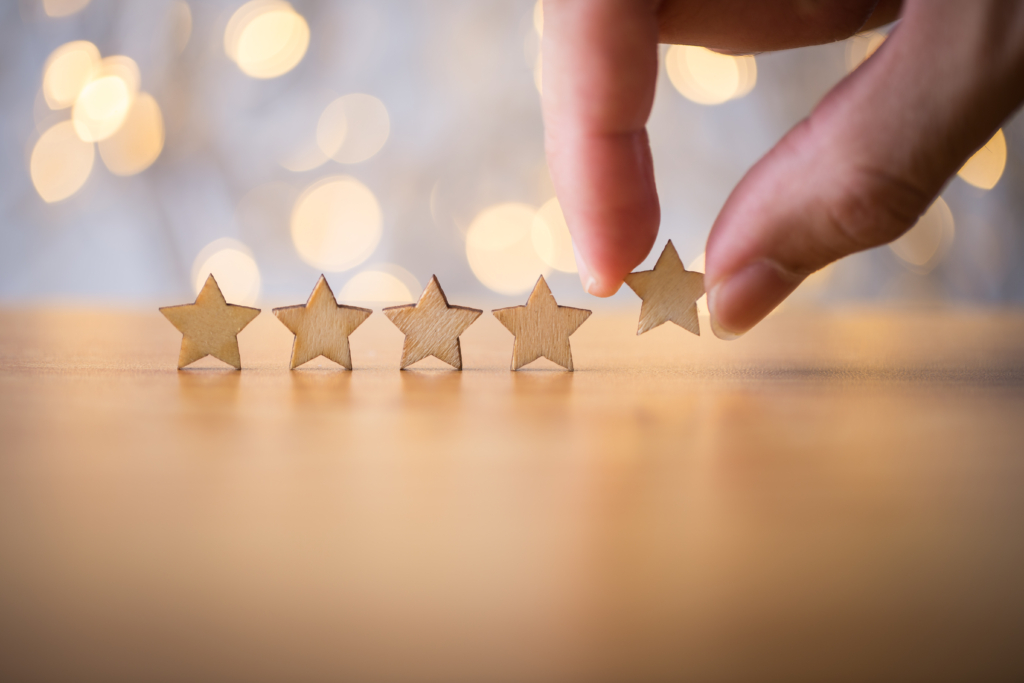




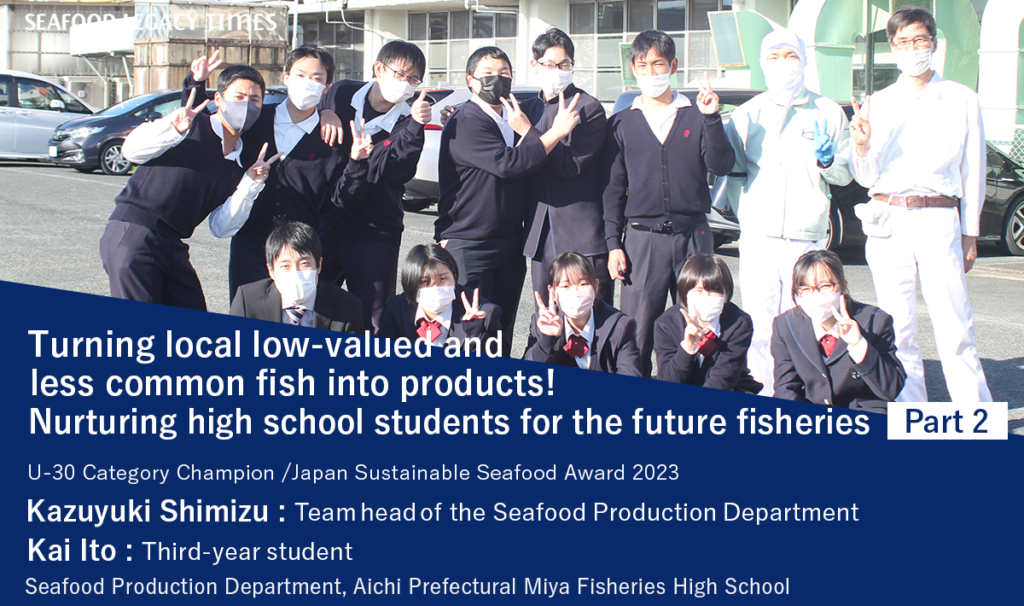
-1024x606.png)


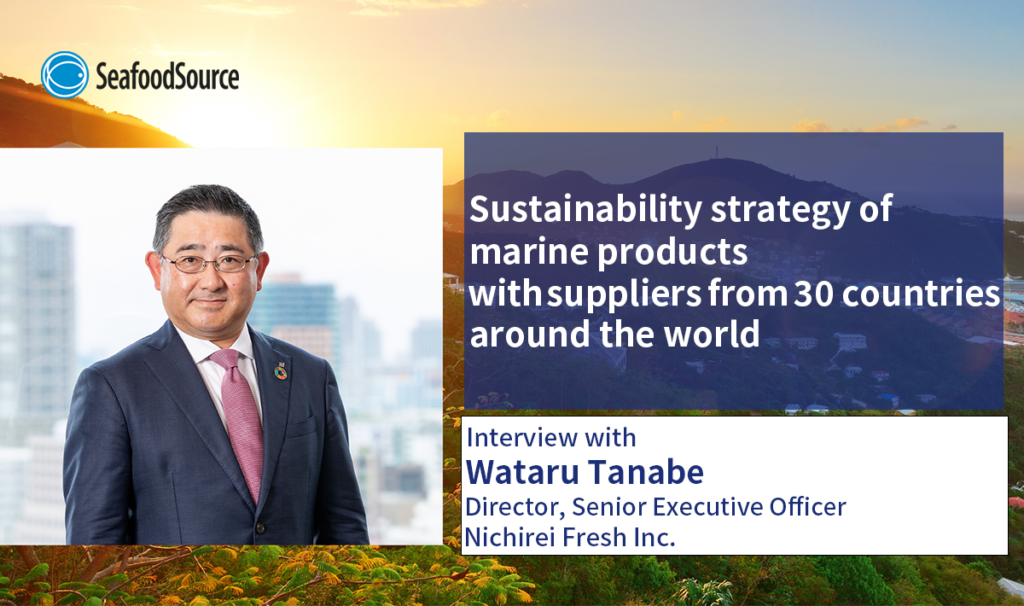
_-1024x606.png)

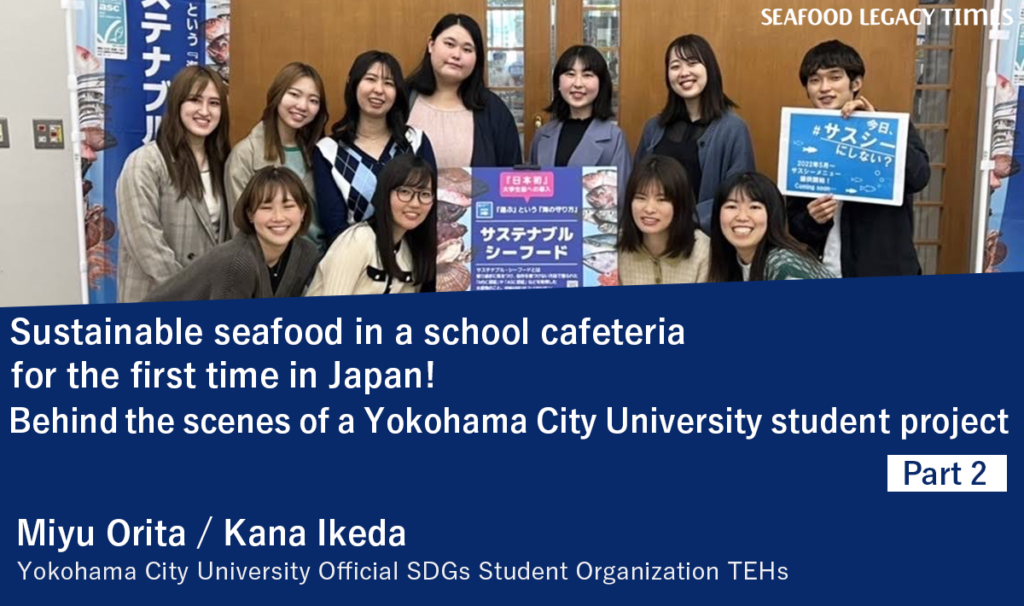
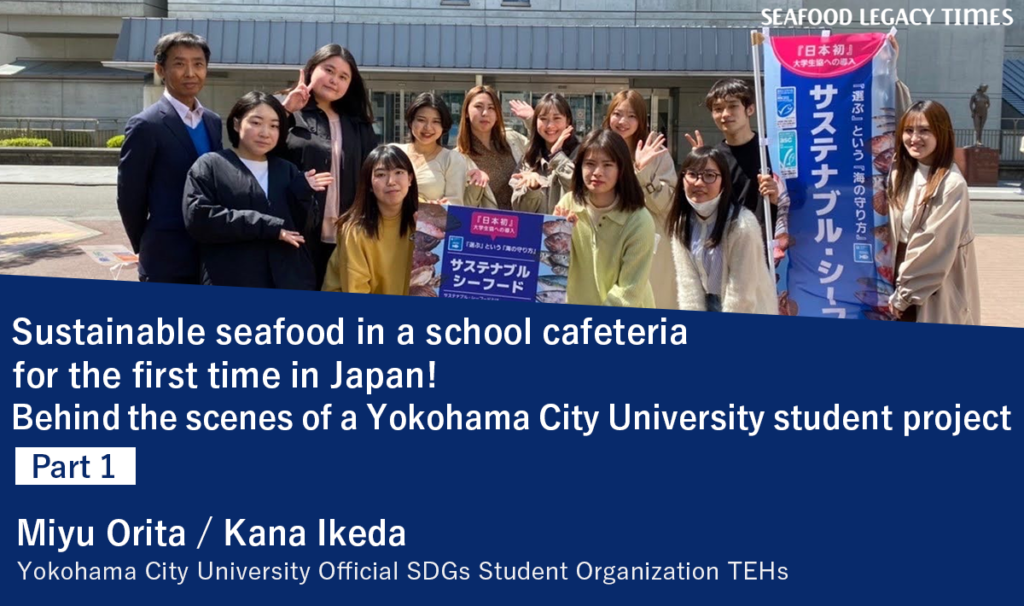



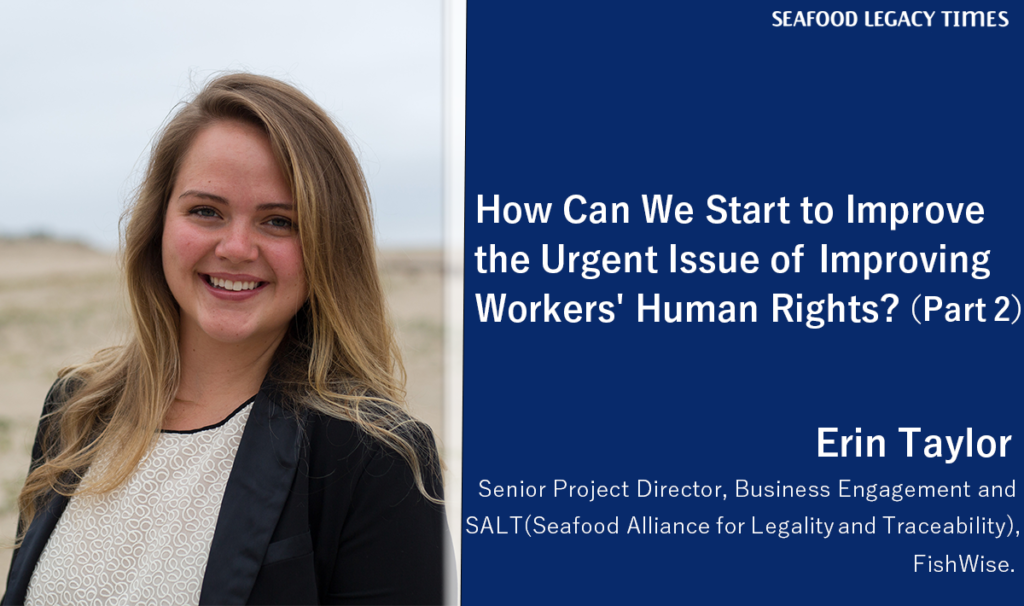
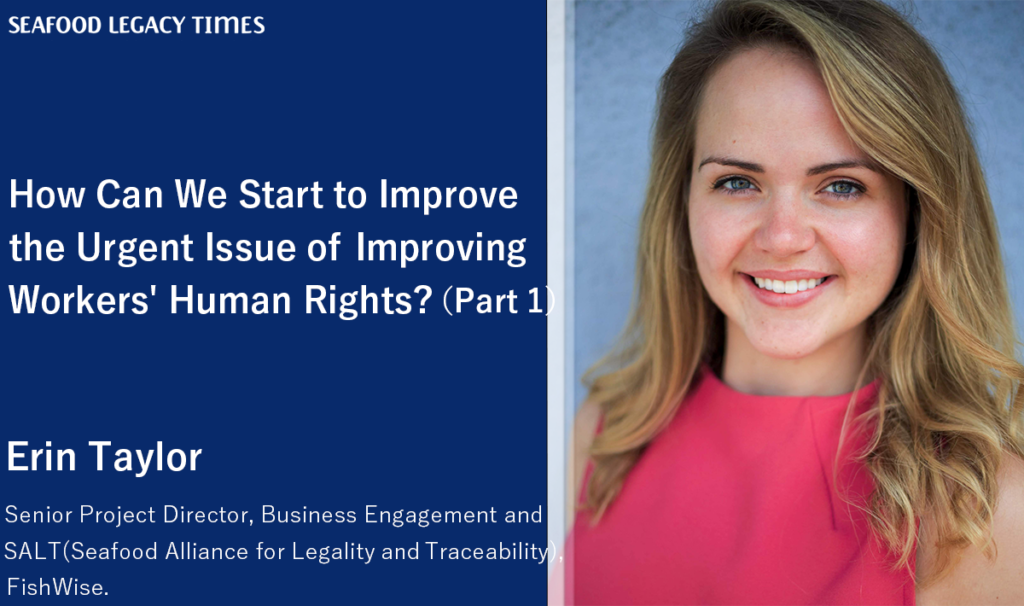
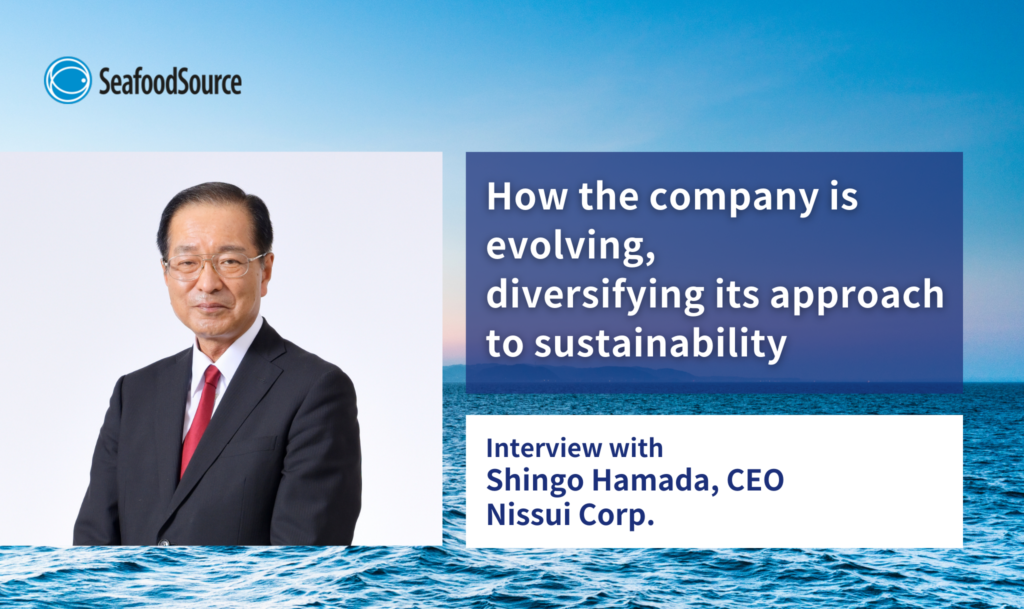




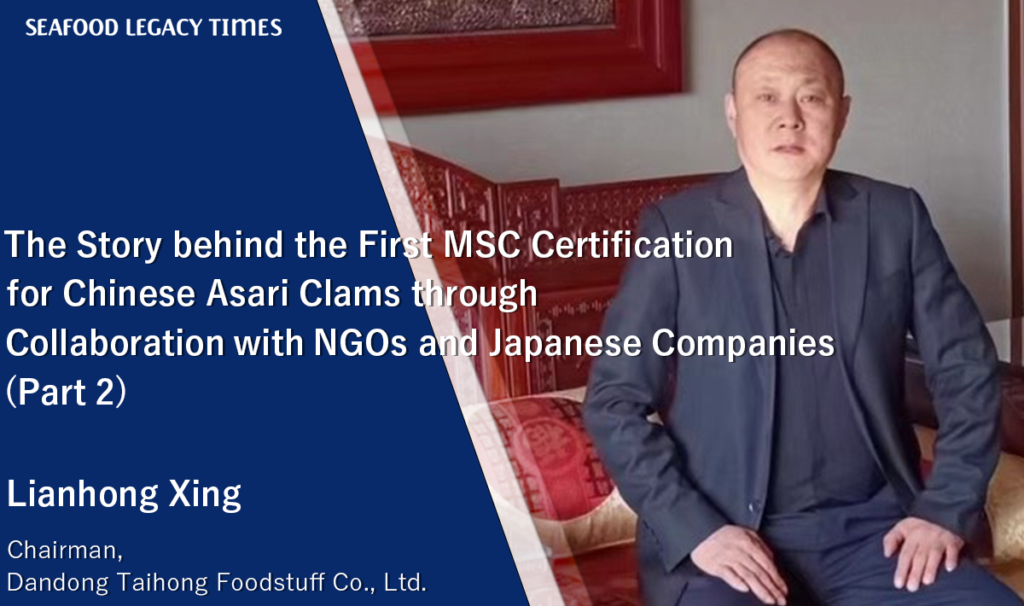
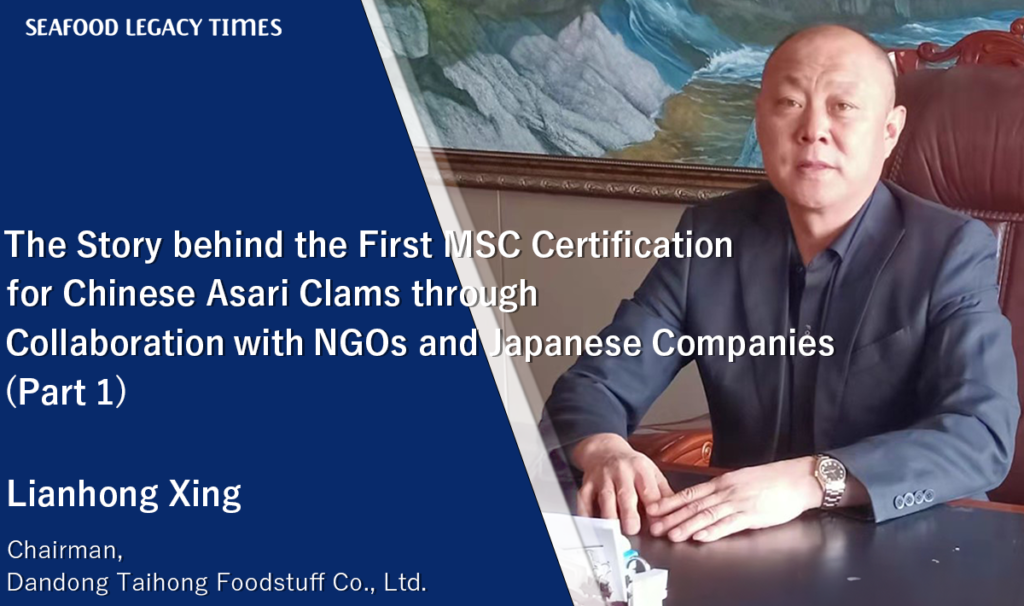

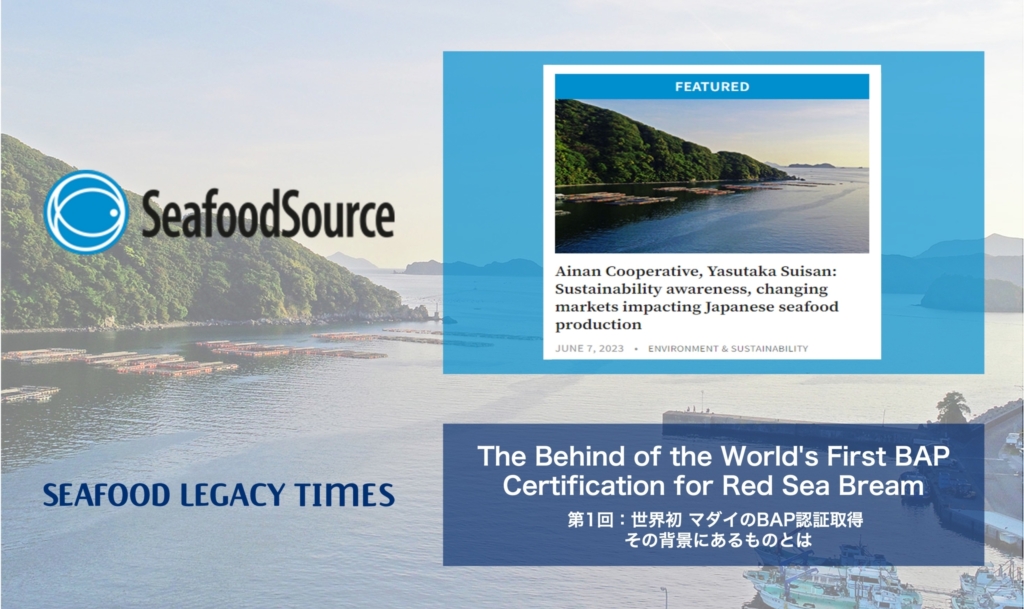

1_修正524-1024x606.png)


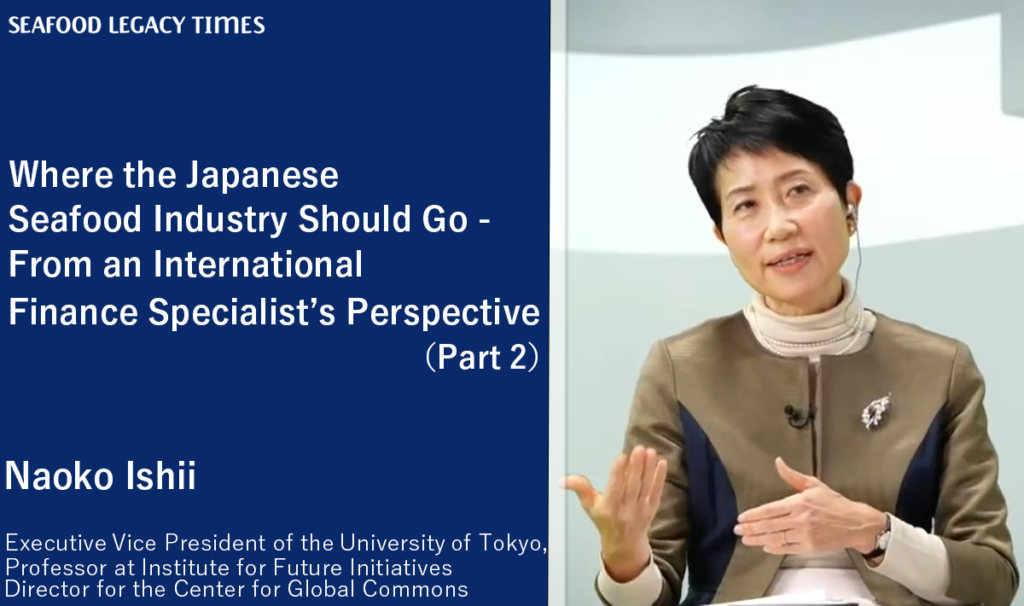







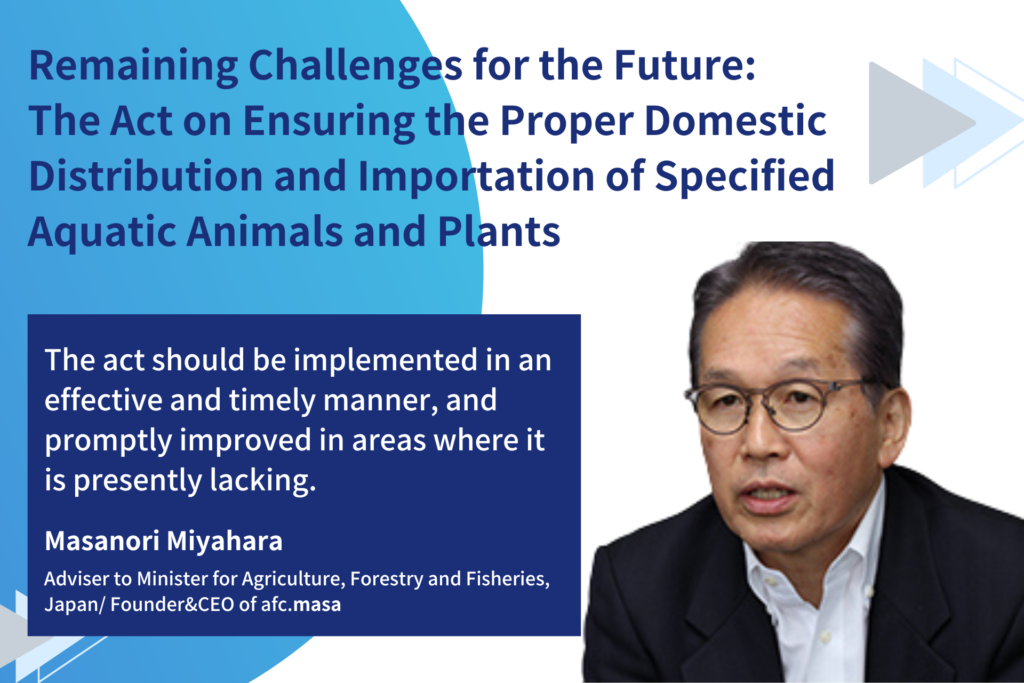
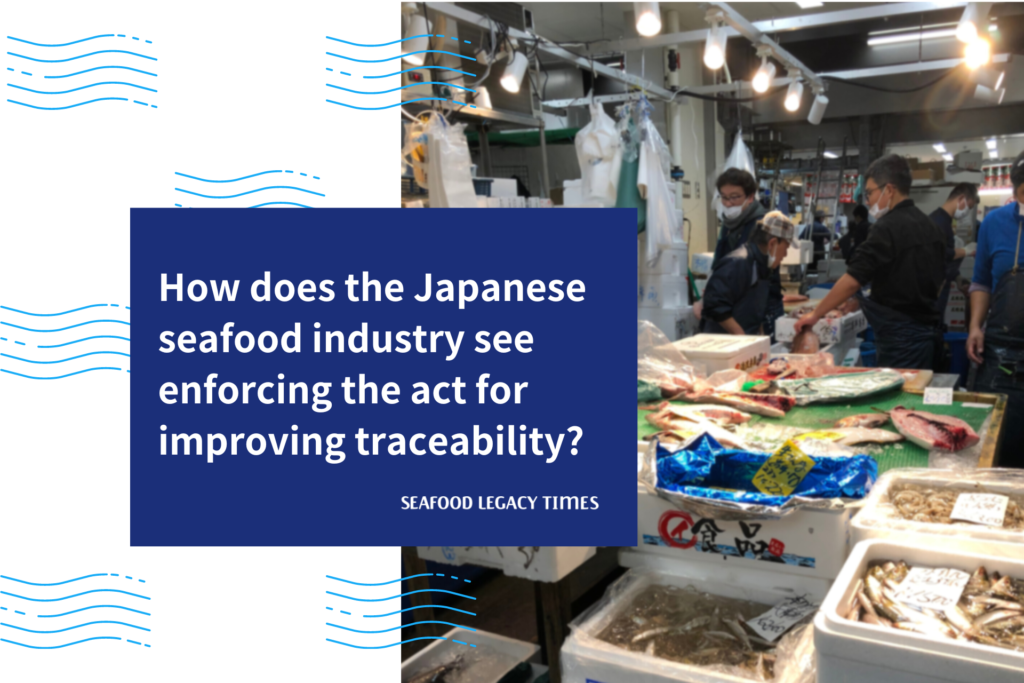



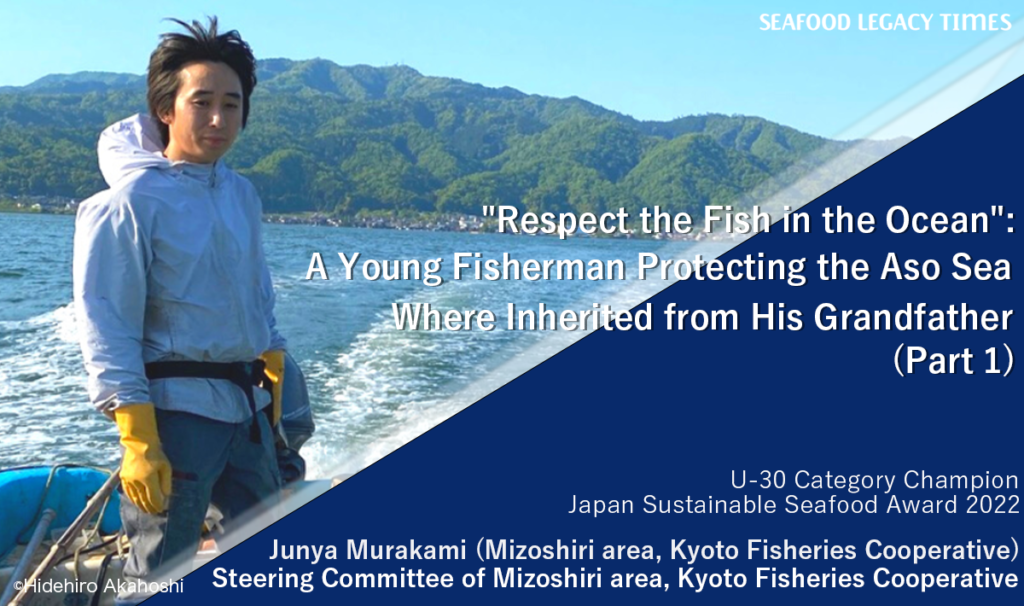
.2-1024x606.png)
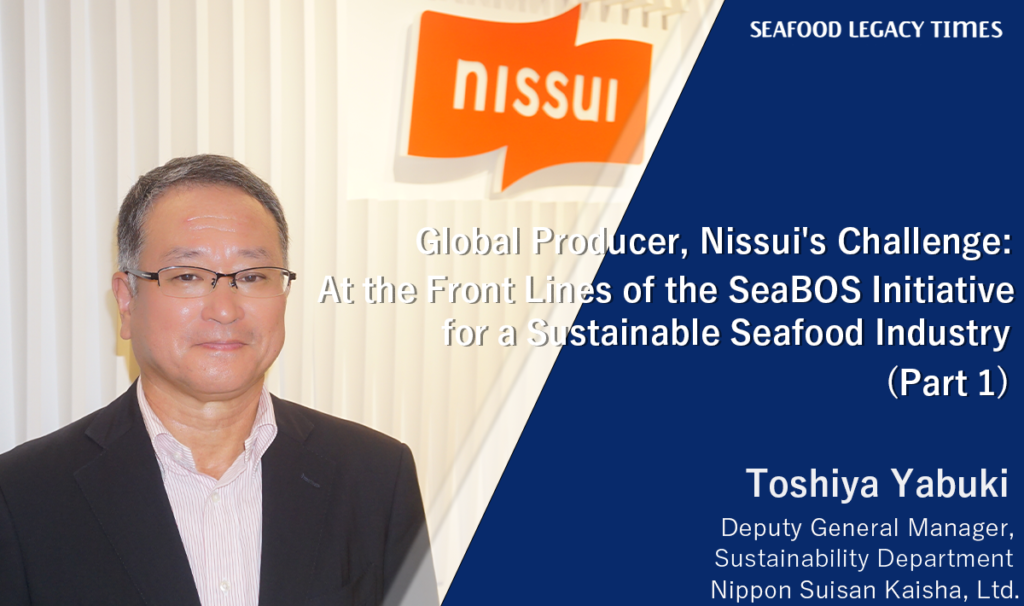
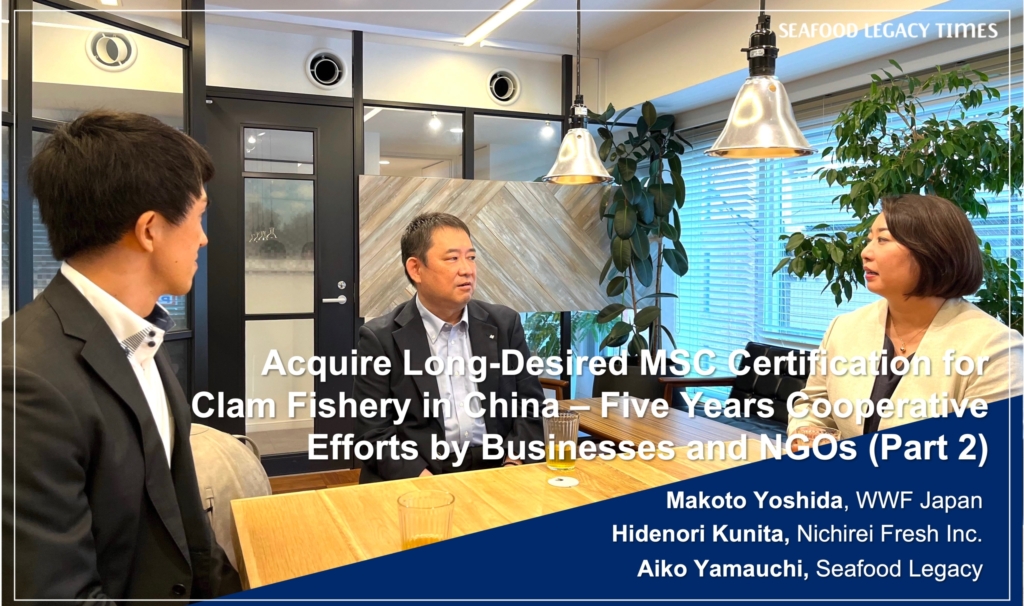
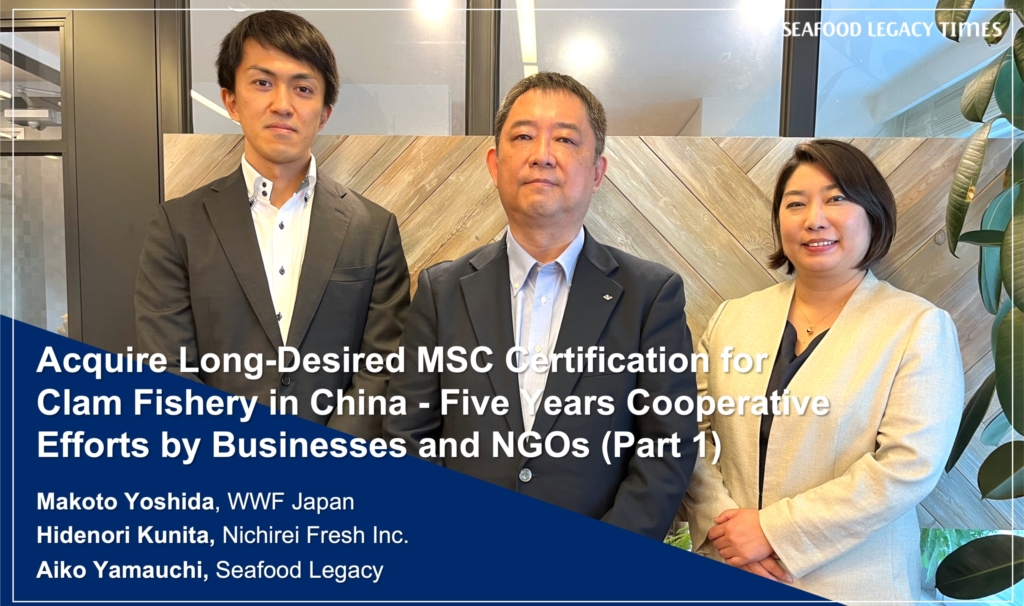







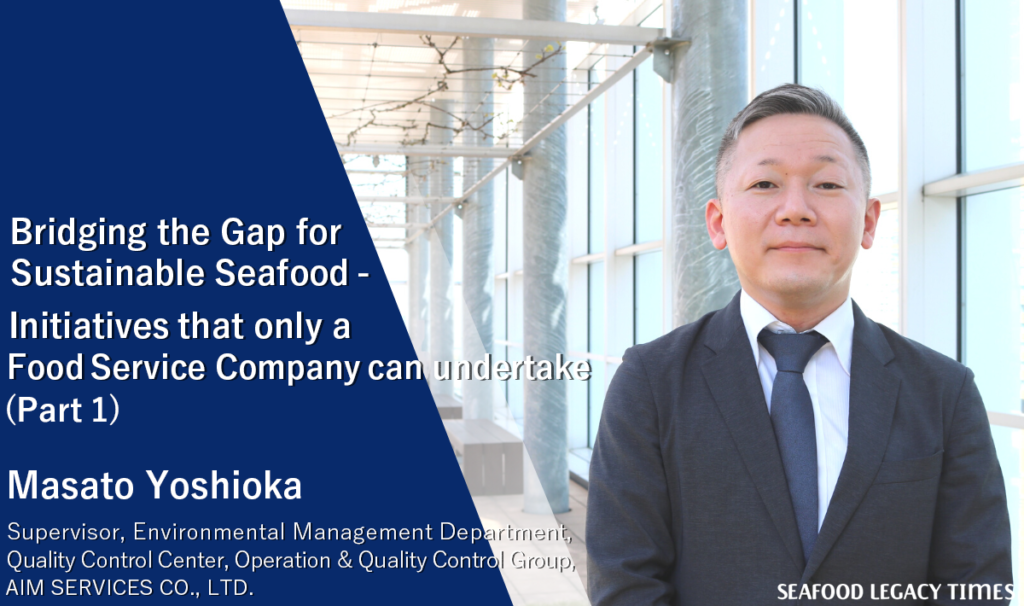
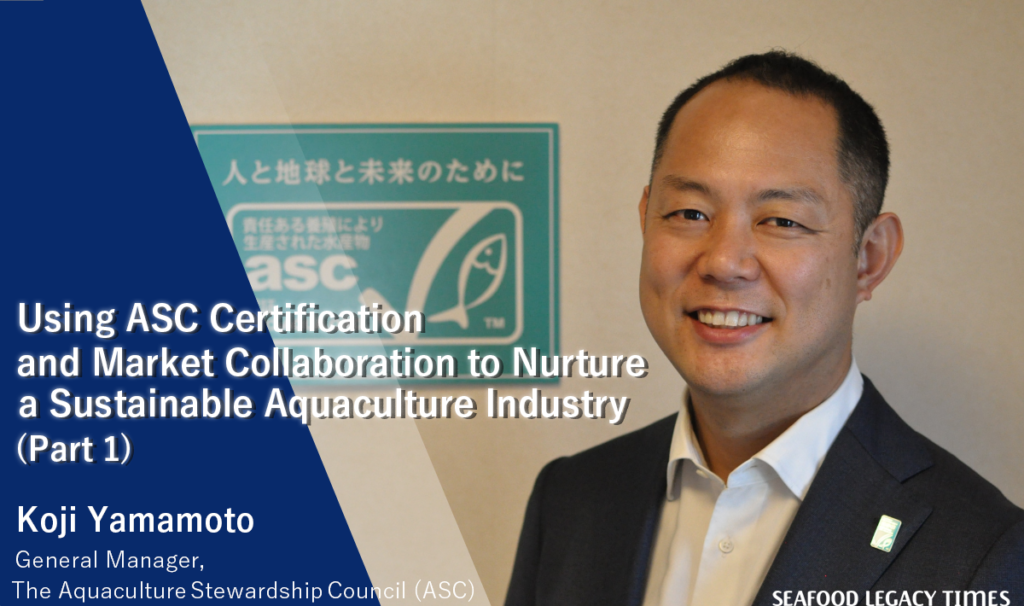
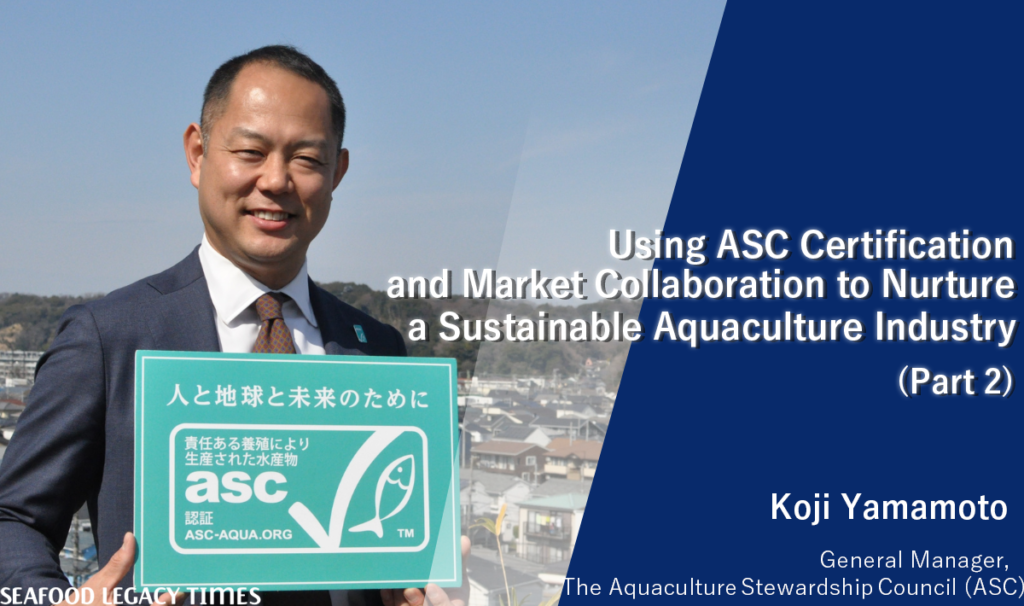
2-1024x606.png)
-1-1024x606.png)
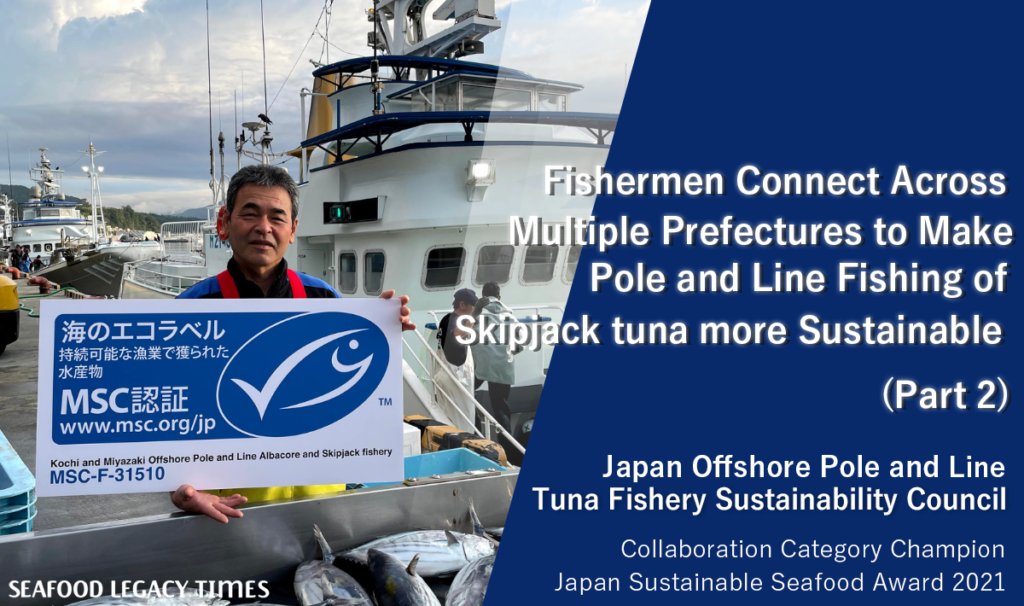
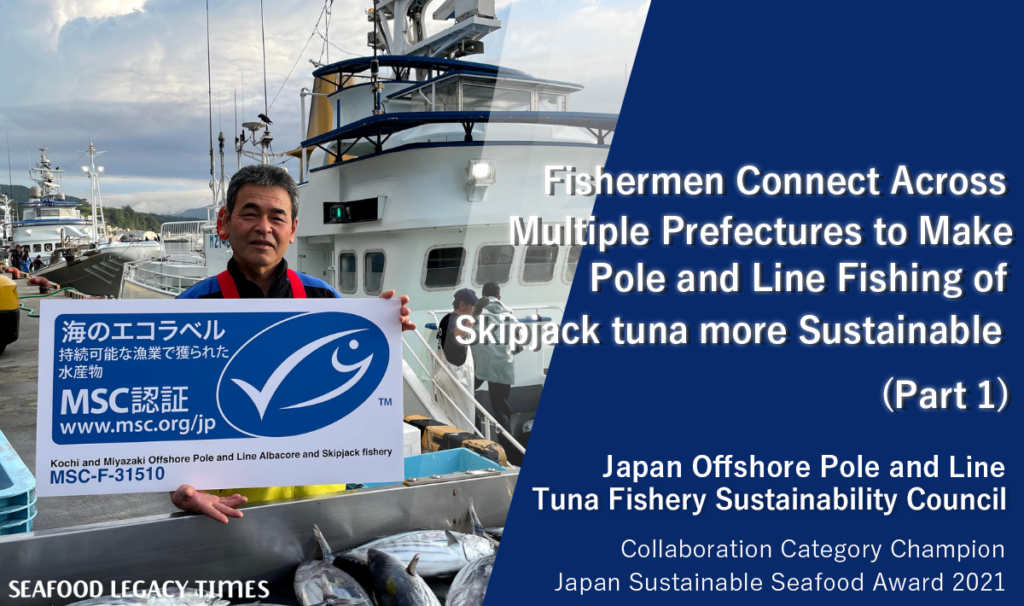
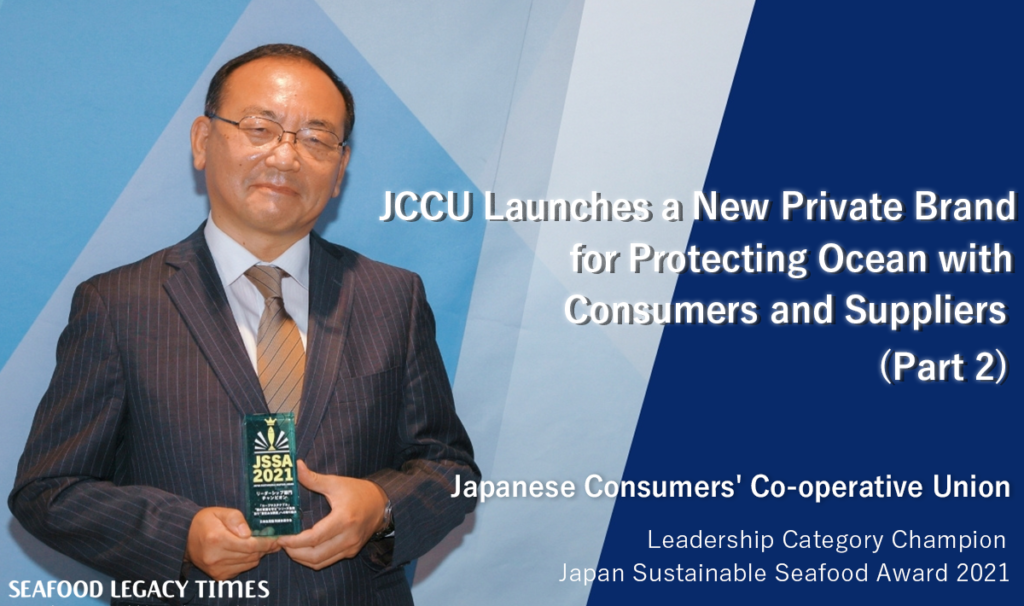
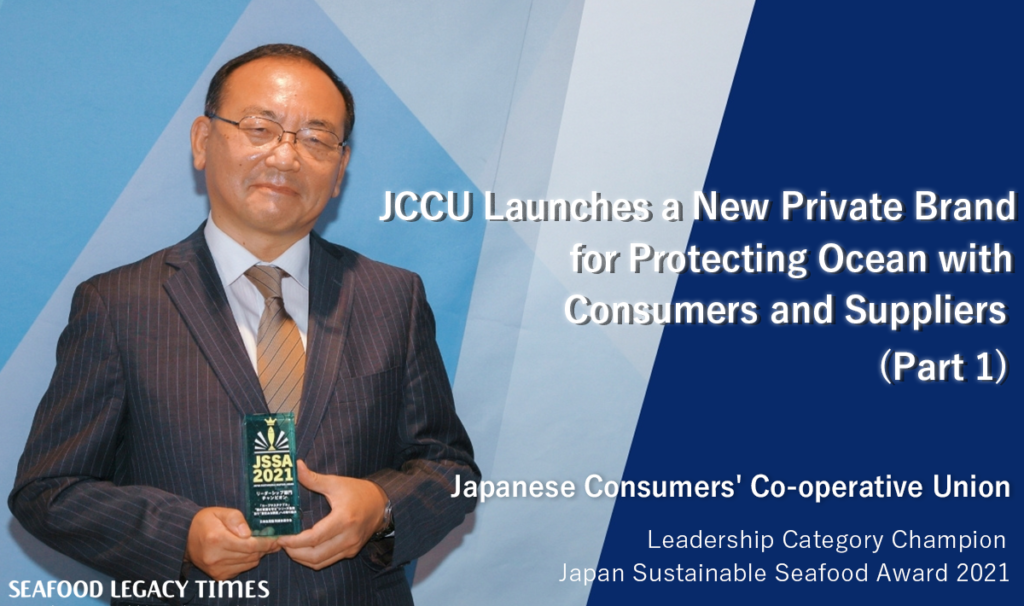
Part2-1024x606.png)
Part1-1024x606.png)
